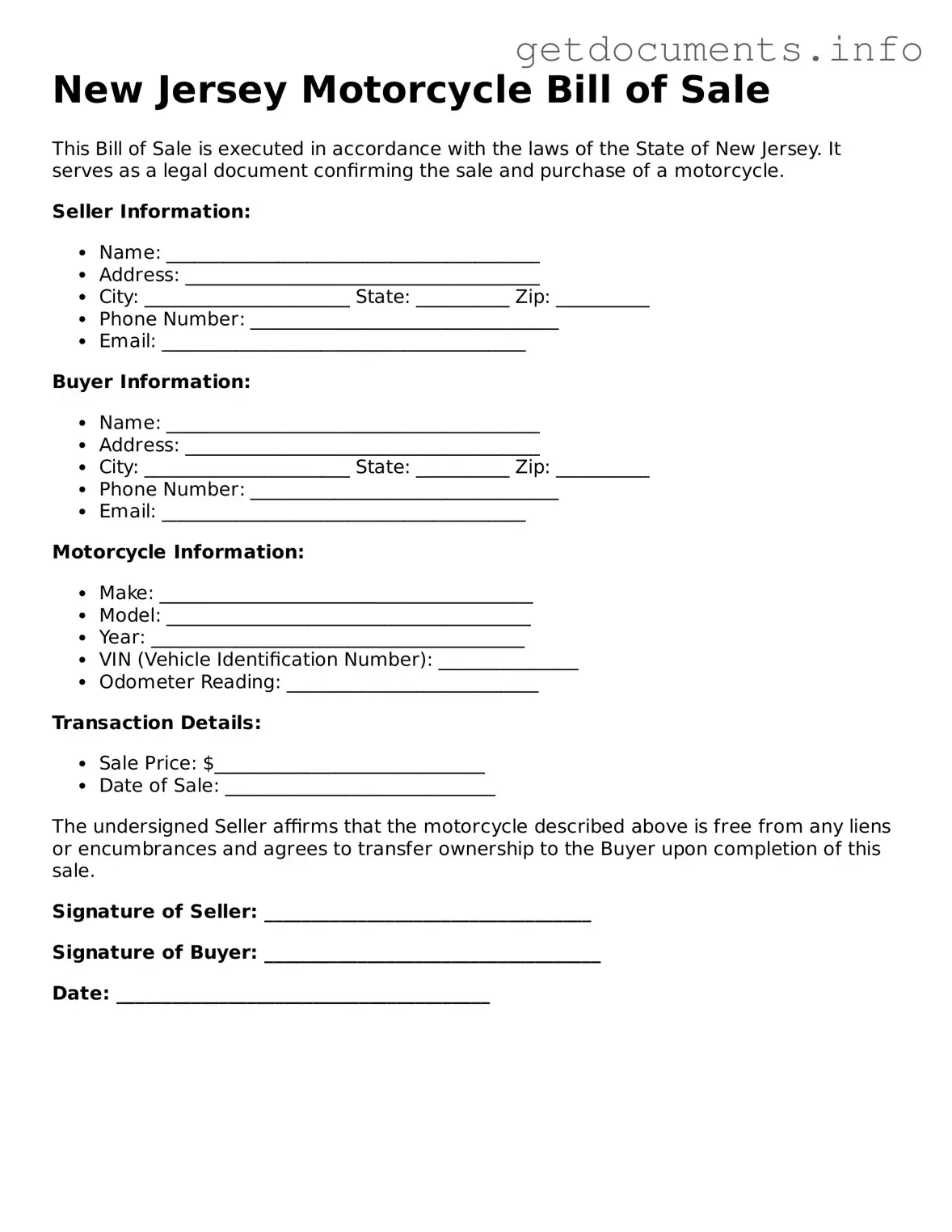Free Motorcycle Bill of Sale Template for New Jersey
A New Jersey Motorcycle Bill of Sale is a legal document that records the transfer of ownership of a motorcycle from one party to another. This form serves as proof of the transaction and includes essential details about the buyer, seller, and the motorcycle itself. To ensure a smooth transfer, consider filling out the form by clicking the button below.
Access Motorcycle Bill of Sale Editor

Free Motorcycle Bill of Sale Template for New Jersey
Access Motorcycle Bill of Sale Editor
Got places to be? Complete the form fast
Fill out Motorcycle Bill of Sale online and avoid printing or scanning.
Access Motorcycle Bill of Sale Editor
or
⇩ PDF File
